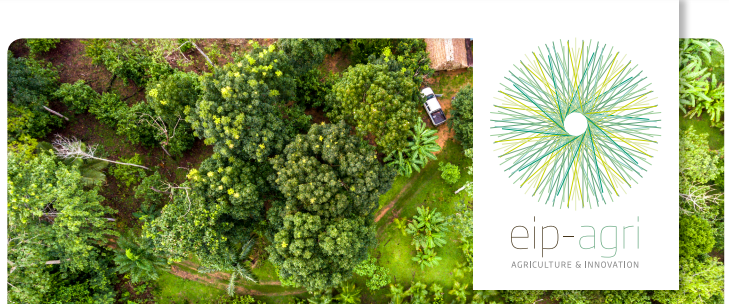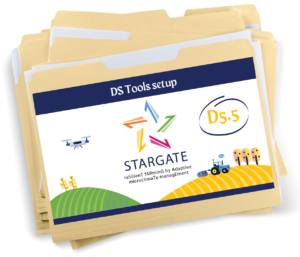- Editorial
- STARGATE in motion
- (Sub)tropical crop diversification
- STARGATE reports
- Space data for resilient agriculture
- Conferences & Events
- News to read
- Stay updated
Editorial
 As nature uncurls from a long winter slumber, spring brings back peace and tranquility. We welcome you all in our 5th newsletter with the wish that spring spreads into all our lives.
As nature uncurls from a long winter slumber, spring brings back peace and tranquility. We welcome you all in our 5th newsletter with the wish that spring spreads into all our lives.
In this STARGATE newsletter find out how (sub)tropical crop diversification can work toward climate resilience and what STARGATE reports on its latest progress. Dig deep into space data and their contribution to reinforcing resilient agriculture. Don’t forget to check out the upcoming “Conferences and Events” as well as the latest “News to read".
Stay updated on STARGATE news and findings by following us on...
STARGATE in motion
![]() Have you met STARGATE's Partners?
Have you met STARGATE's Partners?
![]() Do you want to know more about STARGATE’s progress and deliverables?
Do you want to know more about STARGATE’s progress and deliverables?
![]() Do you want to know what will STARGATE do for climate-smart agriculture?
Do you want to know what will STARGATE do for climate-smart agriculture?
![]() How about Soil-Health Practices & their Potential Benefits or the new EU Soil Strategy 2030?
How about Soil-Health Practices & their Potential Benefits or the new EU Soil Strategy 2030?
![]() All you have to do is click at STARGATE YouTube channel and enjoy our latest videos.
All you have to do is click at STARGATE YouTube channel and enjoy our latest videos.
Promoting (sub)tropical
crop diversification
towards climate resilience
The EIP AGRI Focus Group Climate-smart (sub)tropical food crops in the EU have been working on ways to improve the sustainability of tropical cropping systems in outermost regions of the EU (ORs[1]) and continental Europe. The work group focus was on the promotion of (sub)tropical crop diversification and integrated crop-livestock production systems to make them economically viable and more resilient to climate-change.
The outermost regions of the EU (ORs) are mainly producers of agricultural products with a focus on exports like sugarcane and banana. The orientation to cover market needs has led to monocultures of subtropical crops, and at the same time a high dependency on food imports. Additionally, monocultures are found to be more vulnerable to pests and diseases, and climate change.
(Sub)tropical crops are also of high interest for continental EU countries, given climate change and the resulting changes in temperature and rainfall that may hinder current crop choices. (Sub)tropical crops present opportunities both for ORs and continental EU for sustainable, diversified and resilient productions systems.
In line with the Farm to Fork strategy, (sub)tropical crops, both in outermost regions and in continental Europe, can be interesting options to promote more diversified, sustainable and resilient production systems, that are better adapted to the challenges posed by climate change. After all, diversified systems, adapt better to local conditions and are potentially more environment-friendly and resilient to climate change. Especially for the ORs diversified crops could satisfy local demand which is not yet met by current production.
The Focus Group has identified many climate-smart practices for (sub)tropical crops for both the ORs and continental Europe. Case studies have been highlighted at several levels from the parcel up to the value chain and regional levels. Appropriate options already exist for low-input cropping systems, including traditional systems in ORs that improve diversity (i.e., agroforestry, crop-livestock integration). Nonetheless, the lack of value chains that may recognise the agro-ecological nature of diversified systems poses a limiting factor. The Focus Group has concluded on the need to develop knowledge exchange between ORs and continental Europe, to share good practices and support the development of new ones. Future actions that may improve climate-smart (sub)tropical crops, include innovative projects such as Operational Groups or research needs from practice.
![]() Find the newly published fact sheet here.
Find the newly published fact sheet here.
[1] French Guiana, Guadeloupe, Martinique, Mayotte, Reunion Island and Saint-Martin (France), Azores and Madeira (Portugal), and the Canary Islands (Spain).
STARGATE reports
STARGATE is still going strong and fresh deliverables are being produced. The latest deliverables include:
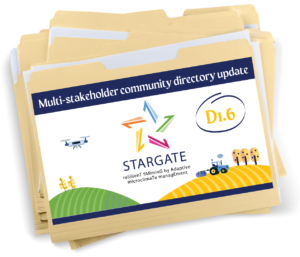 D1.6 Multi‐stakeholder community directory update
D1.6 Multi‐stakeholder community directory update
The deliverable is an updated version of D1.2 “Multistakeholder community directory set‐up” presenting the multi‐actor stakeholder community in each pilot area as it is being formed during the co‐creation and co‐exploration process.
D5.5. DS Tools setup
DS Tools setup presents the web‐based tools that are leading to the Climate Smart Decision Tools Suite [DSS] by following simple and transparent procedures.
You can access all public deliverables here.
Space data
reinforcing resilient agriculture
 Earth observation activities and multiple satellite missions are reinforcing data-driven transformation in the agriculture sector. Farmers are thus given a unique opportunity to adapt to climate change and that is helping farmers adapt to the dual challenges of climate change, understand weather patterns, and effectively manage their farms.
Earth observation activities and multiple satellite missions are reinforcing data-driven transformation in the agriculture sector. Farmers are thus given a unique opportunity to adapt to climate change and that is helping farmers adapt to the dual challenges of climate change, understand weather patterns, and effectively manage their farms.
High-resolution data that are nowadays generated by numerous EO missions, allow scientists to depict the planet’s environment and get a detailed portraiture of vegetation cover, soil properties, seasonal conditions etc. Earth Observation Technologies can help farmers monitor agro-meteorological parameters (i.e., temperature, precipitation) and their impacts on crop conditions. EOT data can also provide them with warnings of potentially extreme - catastrophic events that will enable them to take on mitigation actions. In addition, EO technologies when coupled with other state of the art technologies (i.e., sensors, GPS based technologies) facilitate famers in practising precision agriculture, monitoring their farms remotely, predicting yields etc.
Environmental information generated by Earth observation activities –the Copernicus space programme and Sentinel satellites or NASA’s Landsat and MODIS platforms – has multiple applications for the agriculture sector, including predicting crop yields, monitoring crop damage, assessing the risk of water scarcity, and much more.
 The EFSA has recently announced the upcoming Fluorescence EXplorer (FLEX) mission – which is also an Earth Explorer to the scope of Reinforcing Resilience. This mission will be the first satellite capable of measuring photosynthetic activity by using its high-resolution Fluorescence Imaging Spectrometer to provide worldwide maps of vegetation fluorescence in an attempt to reveal detailed information about plant health and stress. The quantification of vegetation fluorescence, the photochemical reflectance index, and the surface temperature that the FLEX mission concept will provide is expected to produce a most innovative and unique set of measurements for the understanding of actual photosynthetic efficiency, and the status of vegetation health and plant performance, addressing at the same time related societal challenges. These data are valuable for an improved understanding of the global carbon cycle, but also agricultural management and food security.
The EFSA has recently announced the upcoming Fluorescence EXplorer (FLEX) mission – which is also an Earth Explorer to the scope of Reinforcing Resilience. This mission will be the first satellite capable of measuring photosynthetic activity by using its high-resolution Fluorescence Imaging Spectrometer to provide worldwide maps of vegetation fluorescence in an attempt to reveal detailed information about plant health and stress. The quantification of vegetation fluorescence, the photochemical reflectance index, and the surface temperature that the FLEX mission concept will provide is expected to produce a most innovative and unique set of measurements for the understanding of actual photosynthetic efficiency, and the status of vegetation health and plant performance, addressing at the same time related societal challenges. These data are valuable for an improved understanding of the global carbon cycle, but also agricultural management and food security.
The FLES mission was selected as the eighth Earth Explorer in ESA's Living Planet Programme in 2015 and it will fly in tandem with the Copernicus Sentinel-3 mission. FLEX is planned to launch in 2025.
More information on the FLEX mission.
Conferences & Events
 12th CASEE Conference “Sustainable agriculture in the context of climate change and digitalization"
12th CASEE Conference “Sustainable agriculture in the context of climate change and digitalization"
![]() June 22-24, 2022
June 22-24, 2022
![]() Hybrid
Hybrid ![]() Info
Info
The CASEE Board and the State Agrarian University of Moldova warmly invites to the 12th CASEE Conference held under the main theme "Sustainable agriculture in the context of climate change and digitalization". The Conference will be held Chisinau, Moldova and the key topics will tackle Sustainable agriculture and forestry, Climate-smart agriculture and food security, Digital agriculture and engineering and the Environment in the context of climate change.
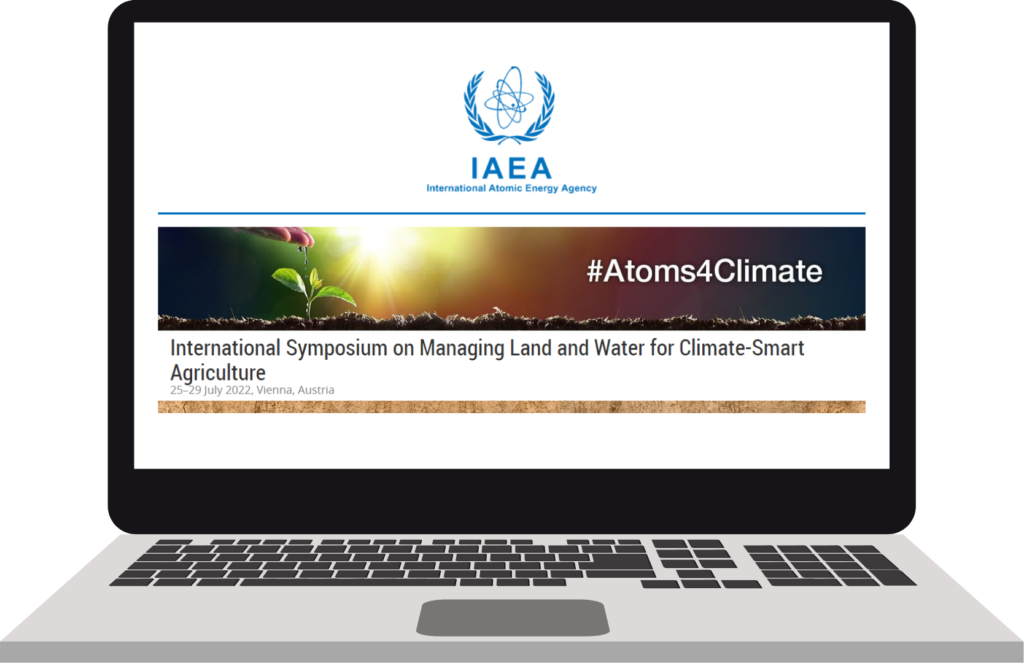 International Symposium on Managing Land and Water for Climate-Smart Agriculture
International Symposium on Managing Land and Water for Climate-Smart Agriculture
![]() June 25-29, 2022
June 25-29, 2022
![]() Vienna, Austria
Vienna, Austria ![]() Info
Info
The ‘International Symposium on Managing Land and Water for Climate-Smart Agriculture’ will be held in Vienna, Austria on July 25-29, 2022. It aims to facilitate the exchange of information and knowledge among soil, water and environment professionals to advance the understanding, collaboration and capabilities to respond to the impact of climate change. It will also draw on lessons learnt, with a focus on new development of nuclear and isotopic techniques to enhance the resilience of livelihoods to threats and crises that impact agriculture and food security.
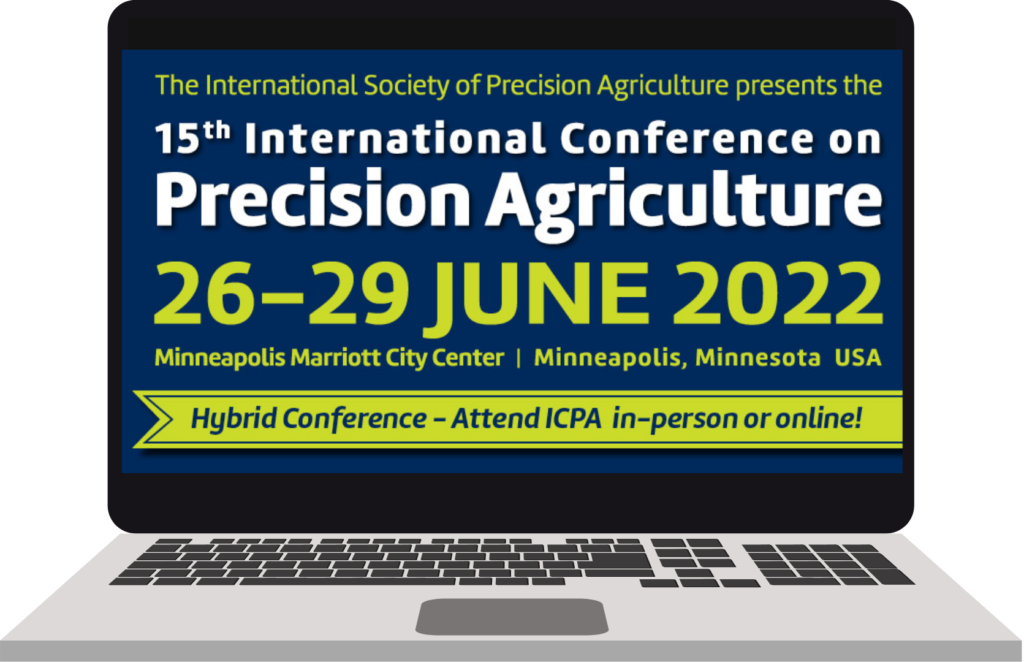 The 15th International Conference on Precision Agriculture
The 15th International Conference on Precision Agriculture
![]() June 26-29, 2022
June 26-29, 2022
![]() Hybrid
Hybrid ![]() Info
Info
The 15th International Conference on Precision Agriculture will be held in Minneapolis, June 26-29, 2022. The Conference will highlight significant research and its applications in precision agriculture and showcase emerging technologies and information management for agriculture. It will also offer oral and poster presentations and exhibits, as well as a discussions and exchange of information in various aspects of precision agriculture. Sessions will provide information on key topics for scientists, crop consultants, advisors, extension personnel, agronomists, producers, and other practitioners.
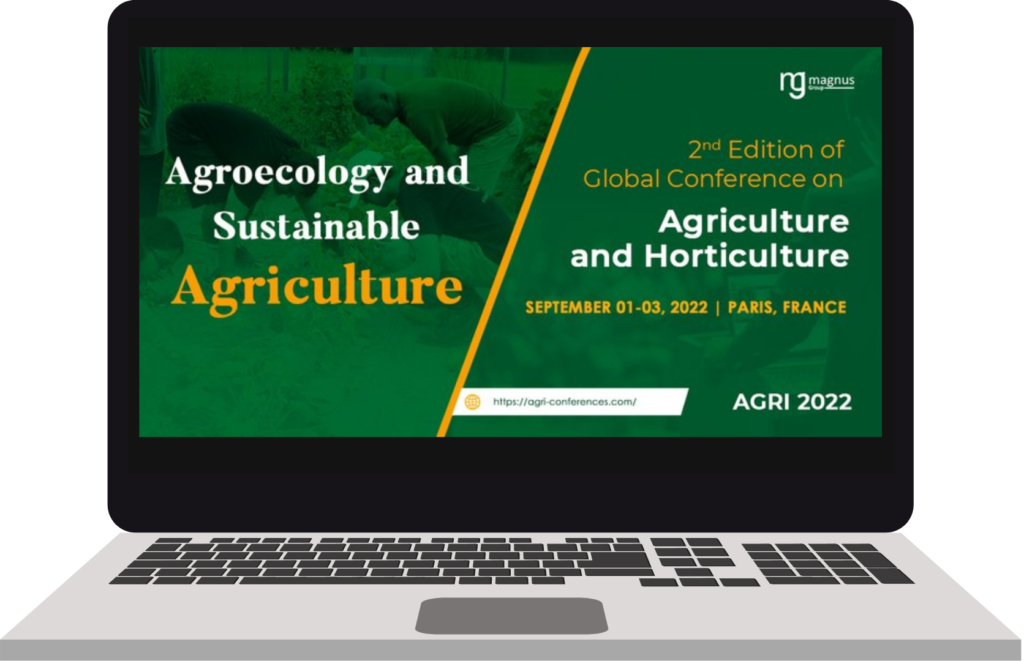 Agri 2022
Agri 2022![]() September 1-3, 2022
September 1-3, 2022
![]() Hybrid
Hybrid ![]() Info
Info
Magnus Group has announced its “2nd Edition of Global Conference on Agriculture and Horticulture” (Agri 2022) which is scheduled in a Hybrid Format with both virtual and in-person versions at Paris, France. The global congress is a three-day scheduled for September 01-03, 2022. The worldwide conference will be centered around the theme “Rethinking Paradigm Shift in Agriculture and Initiatives to Enhance Food Security.” Agri 2022 also provides an opportunity to hold plenary talks, oral and poster presentations, workshop, seminar, or expo to explore new opportunities in agricultural domains and associated sectors.
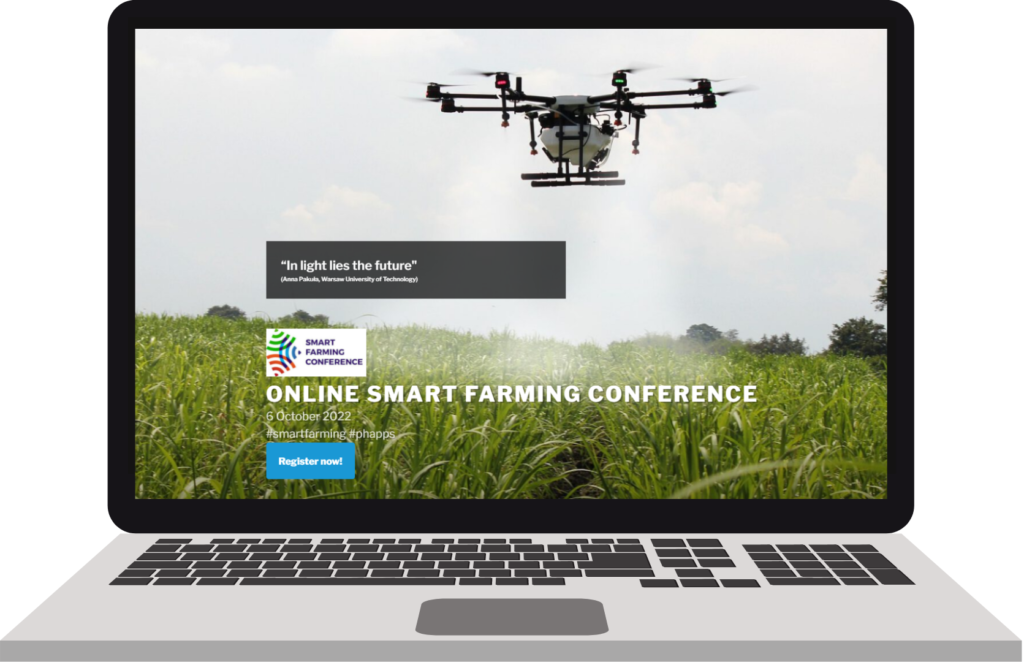 Online Smart Farming Conference
Online Smart Farming Conference![]() October 6, 2022
October 6, 2022
![]() Online
Online ![]() Info
Info
The Online Smart Farming Conference will be held on the 6th of October. The Conference will focus on Available technologies for Farming 4.0 – drones, sensors, Internet of Things, Multi-spectral imaging, Robotics, Big Data, AI, Applying Photonics, Precision agriculture and Investment in R&D. The majority of the presentations in the conference program will be duo-presentations both from the end-user and developer / researcher perspective.
News to read
 SmartCane for higher sugar yields
SmartCane for higher sugar yields
Resilience BV and SmartFarming BV have created a data product that is positioned to increase the production of smallholder sugarcane farmers. This innovative product, known as SmartCane is ready to add efficiency and strength to the sugarcane supply chain in Sub-Saharan Africa. The objective of the service is to provide timely information, with which farmers and commercial sugarcane producing companies can make better decisions, which leads to increased income per hectare and reduced use of precious resources. Find out more.
 Healthier products from regenerative agriculture
Healthier products from regenerative agriculture
A preliminary study published in PeerJ Journal looks at the link between regenerative agriculture methods and their impact on food nutrients. The study shows the relationship between soil-friendly regenerative practices and the nutrient content of food produced in that soil. Researchers found crops from regenerative agriculture farms on average had higher vitamin and nutrient content, whilst results were just as promising for specific nutrients in beef and pork. More info.
 Accelerating Climate-Smart and Inclusive Infrastructure in South Asia
Accelerating Climate-Smart and Inclusive Infrastructure in South Asia
Six South Asian nations, including India, are set to benefit from a new 18 million EUR funding from the European Union (EU), which will help to accelerate climate-smart, inclusive infrastructure investments in their regions. IFC, the largest global development institution, focused on the private sector in emerging markets, will implement the project under the program, Accelerating Climate-Smart and Inclusive Infrastructure in South Asia (ACSIIS). ACSIIS would leverage $ 850 million of private sector investments in the region. Read more.
 IPCC report urges for action
IPCC report urges for action
Following the first part of the IPCC’s Sixth Assessment Report (AR6) released last summer, the report: "Climate Change 2022: Impacts, Adaptation and Vulnerability." was recently published. The report states that climate adaptation is proceeding too slowly, and measures are being implemented on too small a scale to address the major climate challenges faced. Climate change has already reduced agricultural productivity growth in lower- and mid-latitude regions. This poses a serious threat to livelihoods and food security in societies where agriculture is dependent on precipitation. Access the report.
Stay updated
Do you want to stay updated with all the latest on the STARGATE project?
and don’t forget to follow us on social media...
PROJECT COORDINATOR: Professor Dimitrios Moshou
THE CENTRE FOR RESEARCH AND TECHNOLOGY-HELLAS (CERTH)
dmoshou@auth.gr, d.moshou@certh.gr





